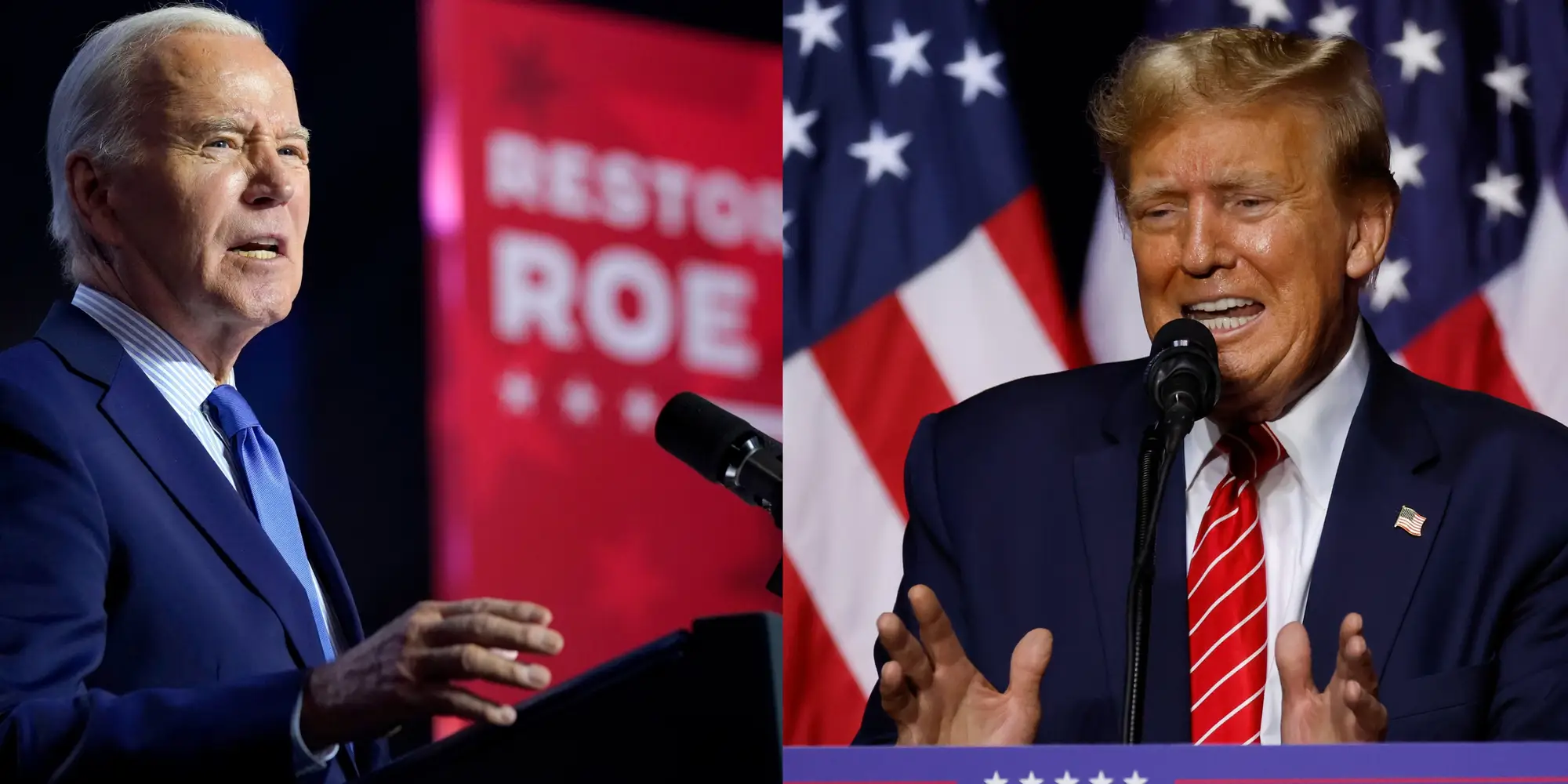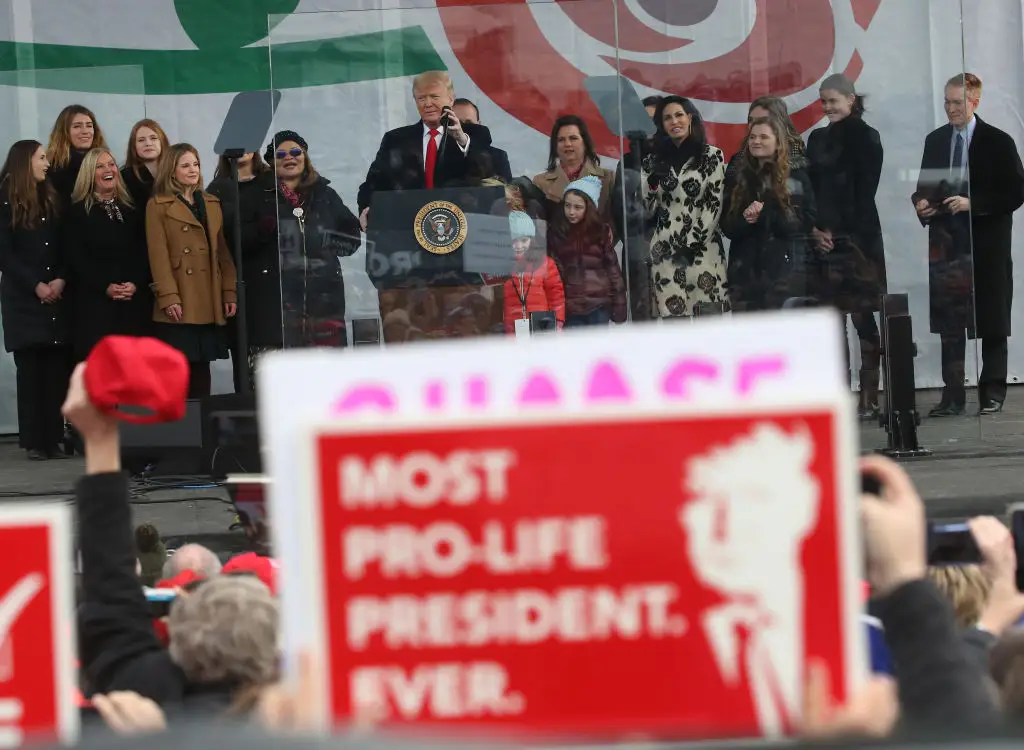Is abortion rights your top issue? Here’s a guide to each 2024 candidate’s stance.

The Supreme Court’s landmark reversal of Roe v. Wade unleashed a torrent of emotions that upended the 2022 midterms. Two years later, abortion rights remain a major issue in the 2024 election.
Polling at both the state and national level shows that abortion is likely President Joe Biden’s best issue. But alone, it’s unlikely to be enough to save him.
Just look at Arizona: Advocates there are hoping to put a measure guaranteeing a right to an abortion until fetal viability, roughly 22 to 25 weeks of pregnancy, before voters this November. A recent CBS News-YouGov poll showed 65% of Arizonans would vote in favor of such a ballot measure. In the same survey, Biden still trailed former President Donald Trump in the state among likely voters 47% to 52%.
There’s also confusion about the issue that could dampen Biden’s advantage.
Nearly one in five voters (17%) in six key swing states incorrectly said Biden is responsible for the end of nationwide abortion rights, according to New York Times/Siena College polls. The Supreme could only overturn Roe thanks to the three Trump-appointed justices. On multiple occasions, Trump has emphatically bragged that he killed Roe.
Here’s a guide on where Biden and Trump stand on the issue.

Vice President Kamala Harris has taken the lead in the Biden campaign’s push to highlight abortion rights on the campaign trail.
Where Joe Biden stands on abortion rights
Biden has repeatedly promised that he would restore Roe. It’s not a simple endeavor. Biden would need Democrats to hold a trifecta again, which would require him to win reelection, Democrats to keep the Senate, and to retake the House. Political pundits currently favor the GOP to retake the chamber, given that some of the most closely-watched races are taking place in states Trump won in 2020.
Even controlling Congress likely wouldn’t be enough. The Senate filibuster requires a de facto 60-vote majority for legislation that would enshrine nationwide abortion rights protection into law. It’s difficult to see how Democrats could net nine additional seats they would need for a filibuster-proof majority. Democrats could change or completely end the filibuster, but such efforts have fizzled in the past. Ending the filibuster would also open the door to Republicans’ passing a nationwide abortion ban in the future.
Some legal experts have also questioned whether Congress has the power to guarantee abortion access. It’s almost certain that anti-abortion rights groups would file legal challenges if Democrats were able to pass such a law.
There are other ways Biden could affect abortion access if he remains in power. The Biden administration has defended access to the abortion drug mifepristone all the way up to the Supreme Court. Under Biden’s direction, the Pentagon has a policy of reimbursing servicemembers who travel for an abortion if they cannot obtain the procedure in the area where they are stationed.
A Biden White House would also likely challenge Republican-led states that try to restrict abortion rights further. For example, Biden and the Justice Department have vowed to defend the ability for women to travel between states if they want to obtain an abortion.

In 2020, Donald Trump became the first sitting president to attend the anti-abortion “March for Life” rally.
Where Donald Trump stands on abortion rights
While there’s little doubt Trump has done more to limit access to abortion in the US than any other president, he has recently tried to avoid the topic entirely, saying that the issue should be left up to individual states.
“The states will determine by vote or legislation or perhaps both, and whatever they decide must be the law of the land,” Trump said in a recent video. “In this case, the law of the state.”
The former president did not mention the role of state Supreme Courts, an issue that came to a head days after Trump’s abortion announcement when the Arizona state Supreme Court found that an 1864 near-total ban on abortions was enforceable. Trump and many Republicans said Arizona went too far amid an uproar after the ruling. (Ultimately, Gov. Katie Hobbs, a Democrat, signed a repeal of the territorial-era ban into law.)
Trump has been less clear on what else he believes about the topic. He has repeatedly promised to outline his views on mifepristone but has failed to do so. He hasn’t said how he will vote as a Florida resident on a proposed constitutional amendment that would guarantee access to abortion to the fetal viability or “when necessary to protect the patient’s health, as determined by the patient’s healthcare provider.”
Trump’s allies want to go even further. Project 2025, an unofficial partnership of right-wing think tanks, has outlined an ambitious series of plans to curtail abortion rights if Trump wins in November. While Trump’s campaign has distanced itself from the group, many of the authors of its plans held key positions in his administration. The plan calls for a future GOP president to take action to reverse FDA approval of mifepristone and to restrict “mail-order abortions.”






